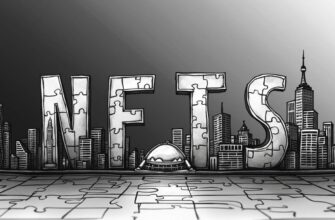Well, well, well, South Korea is looking to dive into crypto ETFs, huh? Sounds like they’re ready to shake things up a bit. With the economy taking a hit and the regulatory landscape being, well, complicated, these ETFs might just be the fresh air the market needs. So, let’s break it down together.
South Korea’s Financial Scene
Eun-Bo Jeong, the big boss of South Korea’s Exchange, is talking ETFs. Crypto-based ones, to be exact. Apparently, there’s a growing demand for these things. This is despite the country dealing with a pretty rough economic patch, thanks to stuff like a shrinking domestic market and geopolitical issues.
South Korea’s economy has been feeling the heat. Exports aren’t exactly booming, and the domestic market’s not much better. Maybe these crypto ETFs could draw in some cash flow from both local and foreign investors? The U.S. Bitcoin ETFs made a splash, after all, bringing in over $35 billion their first year. The idea that South Korea could do the same is tantalizing.
Navigating the Regulatory Labyrinth
But, hold on a second. It’s not all sunshine and rainbows. The FSS had put the brakes on asset managers creating ETFs tied to companies like Coinbase. The Korea Institute of Finance (KIF) is sounding the alarm about the risks these products could bring. Think volatile markets and shaky financial institutions.
Ki Young Ju, CEO of CryptoQuant, is questioning if Korea’s even ready to greenlight these ETFs. He draws a parallel to the U.S. SEC under Gary Gensler, which has kept crypto ETFs in limbo for ages. South Korea’s own FSS has been on the ‘no crypto-related ETFs’ train since 2017.
Global Trends and Local Implications
We can’t ignore the global landscape, either. The success of Bitcoin ETFs around the world has made waves, and South Korea is feeling it. They’re watching how these products are attracting money and getting a nod from institutional investors. It’s only natural for them to want in on the action. Experts predict the ETF sector will keep evolving, with possibilities of combined Bitcoin and Ethereum ETFs coming down the pipeline.
If South Korea gets its act together, these crypto ETFs could change the game. They could draw in a mix of investors, from retail to institutions, and maybe even help stabilize the market. But let’s not forget the risks—cryptos are notoriously volatile, and investors might not know what they’re getting into.
A Glimpse into the Future
What’s next? The future of crypto-related financial products looks bright but complicated. The new Virtual Asset Committee might have some say in this, but don’t hold your breath for quick changes. With political chaos and regulatory caution in play, things will be slow. But if crypto becomes a little more defined and regulated, who knows what could happen?
To sum it all up, South Korea’s flirting with the idea of crypto ETFs is a big step for them. There are definitely bumps in the road, but if they play it right, it could be a win-win situation. They might just find themselves leading the charge in the crypto scene.








